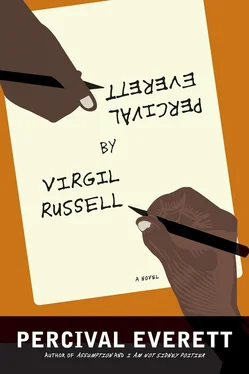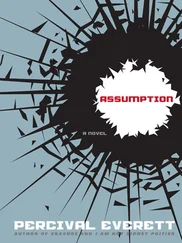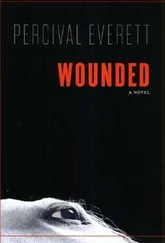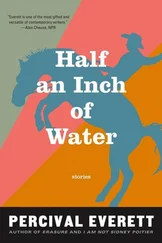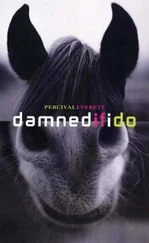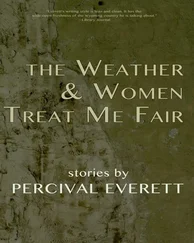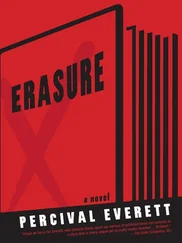If there was no god and the argument for his existence was sound, then language was a great failure or deceiver or bad toy or good toy, that it could be wound up or twisted and if he knew that, that it could not be trusted, then he knew where to put it, how to view it, that it was there for his pleasure, that it was not pernicious, for how could a thing so twisted finally mean anything. Therefore, the lovely therefore, as the argument carried, not a good argument like the Ontological Argument, perhaps not even sound or valid, that he could become a doctor, be a husband, be a father, and rest, if not easy, but rest knowing that it was all a game, not some silly language game, but a walking, running, tackling, blocking, dodging, hitting, hiding, sliding, diving game where everybody dies before they find out it’s just a game. But he was twenty-three when he understood what he would for the rest of his life refer to as
the truth, even with his patients and his colleagues, according to the truth, he would say, according to the truth you have six months to live, according to the truth your wife will leave you, the truth never unraveled, clarified, solved, or explained, never defined, never deciphered or illuminated, but the truth, it coming to this, according to the truth A = A is not the same thing as A is A, and may A have mercy upon your pathetic, wretched, immortal soul, according to the truth.
Why don’t you get along with your brother?
Well, he left his first wife for an Italian woman. But it wasn’t what you think. Aside from the hair, of which she had an abundance, she looked like Benito Mussolini. I have trouble with him because he then left her for a Frenchwoman who looked like the Italian actress Monica Vitti.
You found this morally objectionable.
Not at all. It made me jealous.
And that’s okay.
According to the truth, it’s just fine. You know what the problem with life is? It’s that we can write our own stories but not other people’s. Take you, for example. I have a wholly different story charted for you.
Of course you do.
There’s no need to get an attitude. In fact, I’ll decide that you don’t have one and so it will be. How’s that?
Makes things easier.
That’s more like it.
I should never have become a doctor.
You’re not a doctor.
Not now.
What’s that supposed to mean?
I’m an old man. You tell me. Regardless of what you’ve heard, wisdom does not come with age. Wisdom comes from periods of excessive sexual activity.
I think I knew that.
That’s the you I like. The funny you. Not the you who mopes around wondering how you’re going to take care of the sad business at hand. What I wouldn’t give to get laid.
Dad.
I know my pecker’s dead. So am I. But I don’t know that, I guess. Tell me, tell me, tell me true, tell me I’m dead, all frozen and blue. Tell me I’m rigid, stiff as a board, and playing croquet on the lawn with the lord. You see I don’t even capitalize god when I’m speaking.
Did you just make that up?
What the fuck does that matter? If you must know, it’s from Hamlet , act two hundred, scene fifty-nine.
You see I have this one finger that works, a shutter finger, and so I want a camera, he said to me. Both of his hands, as a matter of fact, worked, along with much of him. I want to start taking pictures he said and I told him that was a great idea and so I bought him a camera, a digital Leica as all cameras are digital now, he making a mock complaint about wanting film, I want the chemicals and all, he said, but finally made nothing of it, holding the camera in his lap, failing to look through the eyepiece or at the little screen, and snapping away. I’m chronicling all that I, rather, my lap sees, indiscriminate and unjudging, no framing, no pictorial editorializing, just mere reception of, if not reality, then the constituent elements of what we call or choose to call the world. It’s a camera, Dad, I said to him and he nodded, turning the thing over and over as if he’d never seen one before, tilting it up to photograph whatever he thought occupied my space in his so-called world. The physics are still basically the same, he said, computers notwithstanding. Light in, image captured upside down.
Every painting has its own lawfulness, its own logic, its own rules. It could have been that I established such logic for my canvases, but I admit that I really do not know. To even consider this away from any singular painting is the cruelty of abstraction, a cutting into the flesh of reality, for as I abstract toward some understanding I necessarily lean toward some example and as I so lean the whole foundation of my argument topples over under the weight of the sheer inadequacy of my example. No one thing can represent all things. Not even within a class it turns out. This may or may not be true. The hardest thing for me was the judgment that there was no need for any one of my paintings to exist, their own inherent rules of logic notwithstanding. I would argue to myself that my expression was but a small participation in the human attempt to move beyond the base and vulgar, purely animal (as if that were a bad thing), and short existence on this planet. And I would do this all the while attempting to commune with, rejoin with, celebrate, the base, vulgar, and pure animal part of myself. Just as modernism’s logical conclusion has to be socialism while ironically relying on and feeding on the construction of an elite class, so my paintings and the art of my time could only pretend to culminate in anarchy while, strangely enough not ironically, finding it impossible to exist without markets and well-defined cliques and order. I have finally circled about, hovered, loitered enough to recognize that my only criterion for the worth of a painting is whether I like looking at it. I no longer say that this painting is good or bad, it might be sentimental, it might be bright, it might be muddy, it might be a cliché, but it is neither good nor bad. Do I like looking at it? That is all I ask. That is all I now answer. I walk the hills behind my house happy because I have learned this. I learned it as I turned my life into a camera obscura, putting a pinhole in one side of my world, letting the scene outside come to me upside down but with accurate perspective. I was feeling rather smug thinking this and enjoying a cup of tea when I saw a head bounce by a window of my studio. I stepped outside.
There was a young woman standing in my drive. She was of medium height, a little heavy, her reddish hair in short curls. Gregory Lang?
I nodded.
My name is Meg Caro, she said. She stepped forward to shake my hand.
What can I do for you?
You’re the painter, right?
Some say.
I’m a painter, too. At least I want to be. I want to be your apprentice. She stood straighter.
This is not the Middle Ages, I said.
Your intern then.
I’ve never seen your work. I don’t know you. You might be dangerous. For all you know, I’m dangerous. I don’t take on apprentices or interns.
I have some photographs of my paintings, she said.
I don’t care. I’m flattered, but I don’t care.
Please, look at them.
I looked down the dirt lane and wished that my wife would drive in, but she wouldn’t be home for another couple of hours.
What will it hurt to look? she asked.
You say your name is Meg?
Meg Caro.
How old are you, Meg Caro?
Twenty-two, she said.
That’s old enough to know better than to visit a strange man all alone.
I know.
Where are you from, Meg Caro?
Miami.
Let me see the pictures.
She opened her backpack and handed me a ring binder.
I opened it but couldn’t see. I’ll have to get my glasses, I said.
Читать дальше
